Категория: Новости.
by L. Mironov, A. Shurukhina, M. Krivchun, P. Parfenov, M. Rabchinskii, I. Kolesnikov, Z. Efimenko, M. Baranov
Journal of Photochemistry and Photobiology A: Chemistry
Vol. 402, 1 November 2020, 112826
https://doi.org/10.1016/j.jphotochem.2020.112826
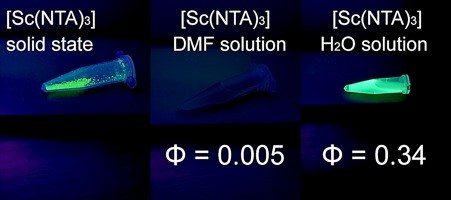
AIEgens represent a special class of molecules, which are emissive in aggregated state, but show almost no fluorescence in dissolved form. Herein we report on the aggregation-induced emission properties of scandium complex with 2-naphtoyltrifluoroacetone ([Sc(NTA)3]). Fluorescence quantum yield of the complex increases ∼68 times, from 0.005 to 0.34, in aqueous solution by comparison with solution in dimethylformamide. This scandium complex is also emissive in powder form or as a film on a glass substrate, indicating that restriction of intramolecular motions facilitates complex fluorescence. The sensitized fluorescence of rhodamine 6 G and rhodamine B was observed in mixed aggregates of complexes and dyes showing the possibility to use [Sc(NTA)3] as efficient energy donor.
Категория: Новости.
by I. Knyazeva, T. Gerasimova, I. Kolesnikov, V. Syakaev, S. Katsyuba, A. Burilov Mendeleev Commun., 30, 650–653
https://doi.org/10.1016/j.mencom.2020.09.033
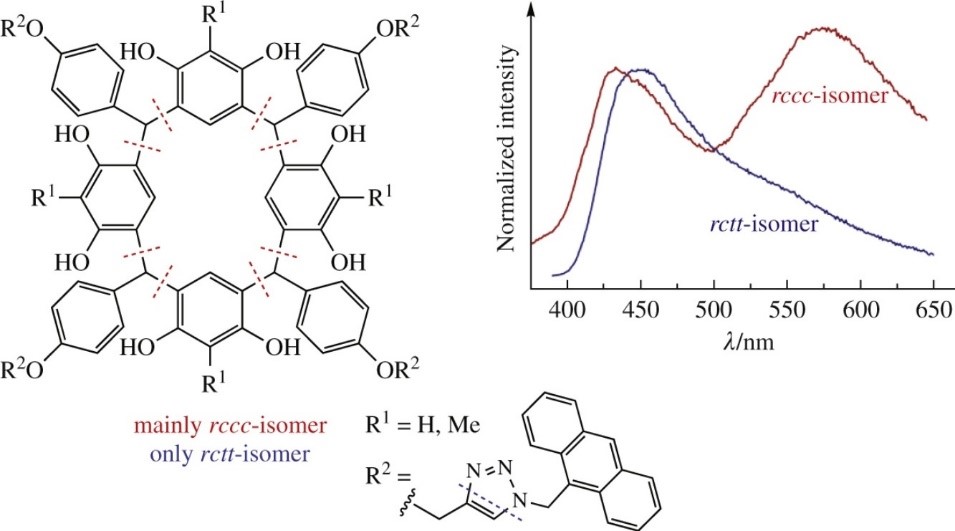
New calix[4]resorcinols with four anthracene-ended triazolecontaining fragments as rctt- and rccc-diastereoisomers were obtained in two synthetic pathways, namely, by acidcatalyzed condensation of resorcinols with 4-{[1-(anthracen-9-ylmethyl)-1H-[1,2,3]triazol-4-yl]methoxy}benzaldehyde or by the click reaction of 9-(azidomethyl)anthracene with calix[4]resorcinols bearing four terminal acetylene moieties. The compounds obtained demonstrate dual emission in solid state with intensity of low energy band depending on calix[4]resorcinol conformation. The emission in solutions is dominated by anthracene bands, with rccc-isomer showing additional low energy band.
Категория: Новости.
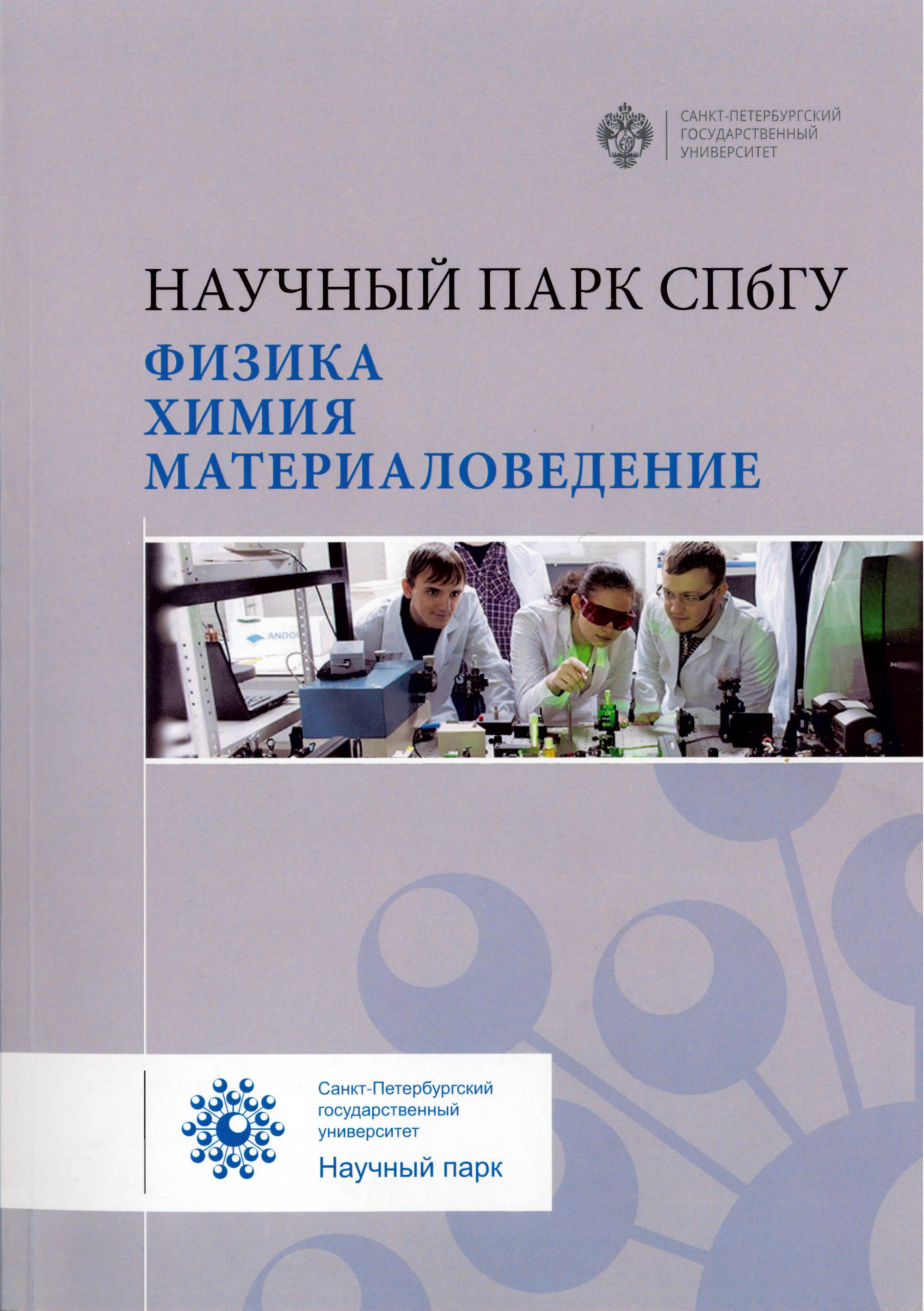
Вышла печатная версия сборника методических разработок сотрудников ресурсных центров Научного парка СПбГУ по направлениям химия, физика и материаловедение. Основные направления научных исследований – нанотехнологии и материаловедение – определяют диапазон тем предлагаемых публикаций. В сборник включены методические статьи сотрудников Научного парка СПбГУ по вопросам фотоэлектронной спектроскопии, сканирующей туннельной и атомно-силовой микроскопии высокого разрешения, фотолитографии и др. Большое внимание уделено детальному описанию методов и подходов.
Книга предназначена для специалистов, а также может быть использована в образовательных программах для подготовки студентов и аспирантов по направлениям физика, химия, материаловедение.
ISBN 978-5-288-06027-4
Категория: Новости.
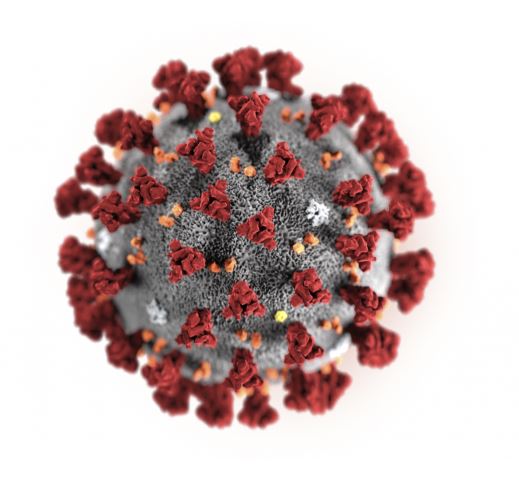
В период борьбы с новой короновирусной инфекцией СПбГУ продолжает делать всё возможное, чтобы не допустить распространения вируса в стенах университета, но при этом выполнить свои обязательства перед обучающимися и сотрудниками. Ресурсный центр «Оптические и лазерные методы исследования вещества» работает в соответствии с введенными ограничениями, в центре выполняется весь спектр предоставляемых услуг.
Категория: Новости.
by A. Shamsieva, E. Musina, T. Gerasimova, I. Strelnik, A. Strelnik, I. Kolesnikov, A. Kalinichev, D. Islamov, A. Samigullina, P. Lӧnnecke, S. Katsyubaa, E. Hey-Hawkins, A. Karasik, O. Sinyashin
Dalton Trans., 2020,49, 11997-12008
https://doi.org/10.1039/D0DT01843K
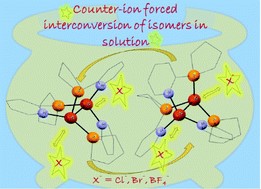
A family of helical dinuclear copper(I) pyridylphospholane complexes [Cu2L3X]X (X = BF4−, Cl− and Br−) was prepared. The family includes the first examples of this type of complex based on copper(I) chloride and copper(I) bromide. The two isomers typical of this class of compounds, namely head-to-head and head-to-tail complexes, were studied in solution by spectroscopic and optical methods, and in the solid state by X-ray diffraction. Furthermore, the solid-state luminescence of the complexes at different temperatures was studied, and the results were interpreted using quantum-chemical calculations. It was shown that the luminescence of the complexes is attributed to the 3(M + X)LCT transitions.


 Русский (РФ)
Русский (РФ)  English (UK)
English (UK) 


